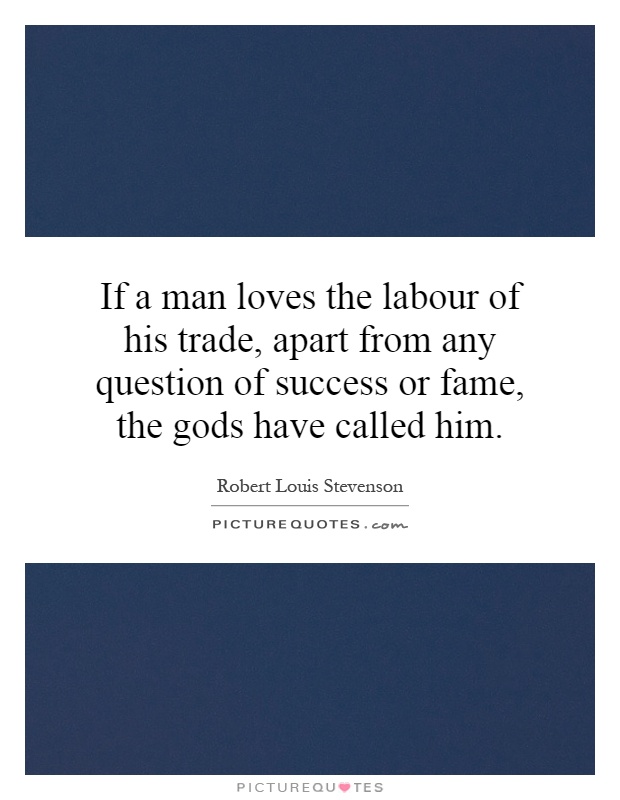If a man loves the labour of his trade, apart from any question of success or fame, the gods have called him

If a man loves the labour of his trade, apart from any question of success or fame, the gods have called him
Robert Louis Stevenson was a man who truly loved the labour of his trade. As a writer, he poured his heart and soul into his work, creating timeless classics such as "Treasure Island" and "Strange Case of Dr Jekyll and Mr Hyde". Stevenson's passion for writing was evident in every word he penned, and his dedication to his craft was unwavering.Stevenson's love for writing went beyond any desire for success or fame. He wrote because he felt compelled to do so, because it was a calling that he could not ignore. In his essay "A College Magazine", Stevenson wrote, "To be what we are, and to become what we are capable of becoming, is the only end of life." For Stevenson, writing was not just a job or a means to an end – it was a way of life, a way of expressing himself and fulfilling his true potential.
Stevenson's dedication to his craft was not always easy. He faced numerous challenges and setbacks throughout his career, including health issues and financial struggles. However, through it all, he remained steadfast in his commitment to writing. In his essay "An Apology for Idlers", Stevenson wrote, "There is no duty we so much underrate as the duty of being happy." For Stevenson, happiness came from doing what he loved, regardless of the obstacles in his path.
Stevenson's love for writing was not just a personal passion – it was a gift that he shared with the world. His stories continue to captivate readers of all ages, inspiring countless adaptations and interpretations. Stevenson's legacy as a writer is a testament to the power of following one's true calling, of pursuing a labour of love with unwavering dedication and commitment.












 Friendship Quotes
Friendship Quotes Love Quotes
Love Quotes Life Quotes
Life Quotes Funny Quotes
Funny Quotes Motivational Quotes
Motivational Quotes Inspirational Quotes
Inspirational Quotes